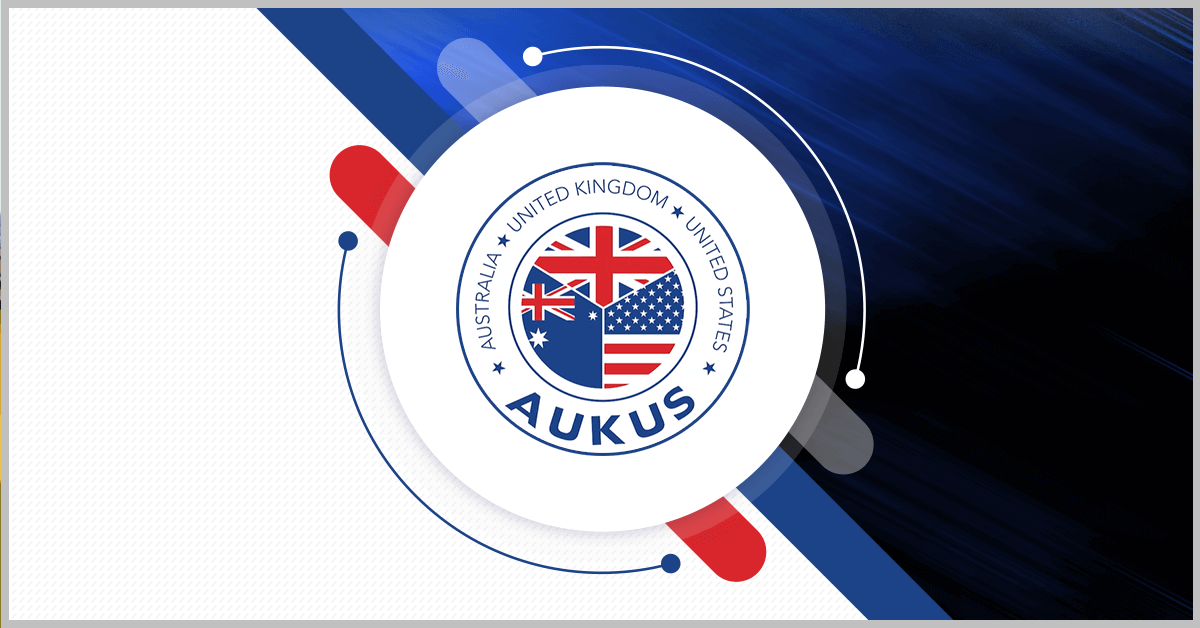The AUKUS agreement — a trilateral security pact between the U.S., U.K. and Australia — was first announced in September 2021. As the partnership enters its fourth year, leaders across AUKUS nations are looking to continue their momentum by continuing to cultivate an integrated innovation environment.
During a panel discussion at the Potomac Officers Club’s GovCon International Summit last week, Nicholas Hasko, principal deputy adviser for the U.S. Department of State’s Office of the AUKUS Senior Adviser, explained that AUKUS does not function as an alliance — “we’re already allies” — but as a “knowledge sharing partnership.”
AUKUS is built on two pillars, the first of which is delivering conventionally armed, nuclear powered submarines to Australia. Pillar 2, the second component of this effort, centers collaborative technology development.
Phoebe Greentree, minister-counsellor for AUKUS at the Embassy of Australia, noted the common thread of “working in an integrated way” across both components of the agreement, which has allowed Australia to collaborate with its partners in different groupings and purposes.
AUKUS, said Brian Burton, senior adviser for international and industry engagement within the Office of the Under Secretary of Defense for Acquisition and Sustainment, is characterized by a “continued focus on experimentation.”
The DOD, he said, is approaching the program by trying to “make not business as usual become business as usual.”
As AUKUS initiatives progress, it has become “very clear” that there are more opportunities ahead, particularly in looking “up and out in our engagements with industry and academia,” Greentree said.
She emphasized that although AUKUS does have set goals, there is always a sense of evolution as new opportunities are uncovered through continued experimentation.
AUKUS initiatives, added RDML Lincoln Reifsteck, director of the Department of the Navy’s AUKUS Integration & Acquisition Program, are on an “intentionally aggressive schedule.” To make AUKUS goals a reality, “you have to be willing to be aggressive, bold and work hard,” he said.
What makes these collaborative arrangements possible is policy. Hasko noted the “fantastically high level of bipartisan consensus” on AUKUS-related policies across all three nations that has allowed the program to flourish.
While progress continues, AUKUS countries are keeping an open mind about how they can update policies as needs change. For the Defense Department, Burton said, this means looking into acquisition reforms and other policy changes. He also highlighted efforts to increase collaboration with partners on the department’s National Defense Industrial Strategy, which was released in January.
In August, the U.S. Department of State announced a new rule amending the International Traffic in Arms Regulations to better accommodate AUKUS needs. The rule, which took effect in September, declared an export licensing exemption for Australia and the U.K.
These reforms, Hasko said, will enable organic collaboration “not just at the government-government level, but industry-industry, even at the small or medium enterprise level.”

Learn about today’s homeland security landscape at the Potomac Officers Club’s next event, the 2024 Homeland Security Summit on Nov. 13! During this event, experts in the field will come together to discuss the Department of Homeland Security’s top priorities and challenges. Join the conversation at the 2024 Homeland Security Summit.




